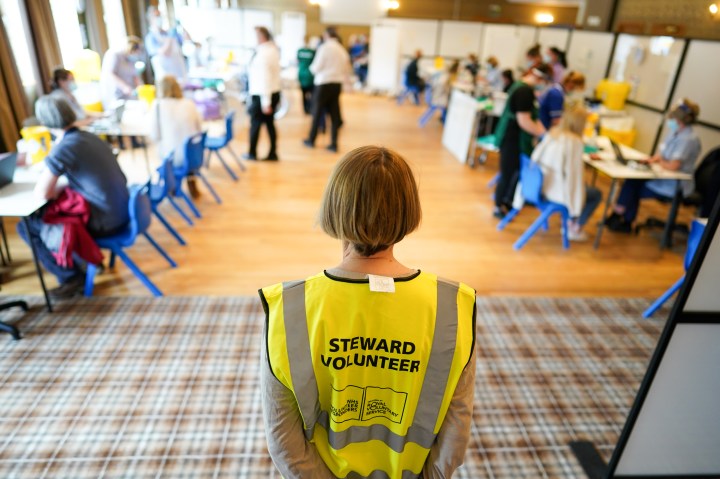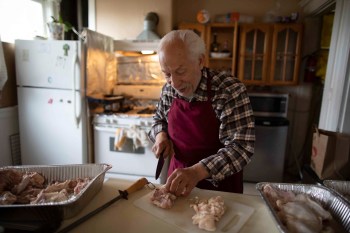
Adding up the economic benefits of volunteering during a pandemic
Adding up the economic benefits of volunteering during a pandemic

How would you like to get a check for $2,500? The well-being boost you’d likely feel from that is the same one people who have been volunteering during the pandemic have felt, according to new research from the London School of Economics.
The study found the benefit to participants in the National Health Service’s Volunteer Responders Program was about 140 times the cost of actually running it. With 250,000 volunteers, the LSE found the net benefit equates to a $627 million boost to the nation’s economy.
Chris Krekel, a behavioral sciences professor who worked on the study, explained the team arrived at that conclusion by comparing life and income satisfaction of those who volunteered with those who weren’t assigned a task.
“There’s huge amounts of hours put into volunteering,” Krekel said. “The real economic benefit is you would otherwise have to hire people to do that work. So if you wanted to monetize that differently, that would be the hourly wage rate you could take.”
England’s National Health Service saw a surge in people signing up for its Responders Program: In just four days, it said three-quarters of a million people registered interest in what became the biggest volunteer mobilization since World War II.
Those who signed up have supported the country’s most vulnerable people by delivering groceries, having phone conversations or helping with transportation to and from doctor appointments.

Mark Walsh, a former police officer for 16 years, has been volunteering for the program throughout the pandemic. He said he signed up within 10 minutes of hearing about the opportunity, and he’s found it to be a rewarding experience.
“I can to this day remember my first volunteer shift,” he said. “It was quite overwhelming, really. The shift can be long. It’s a lot of standing on your feet. Coming together and seeing the expressions on people’s face coming for their vaccine … that was quite emotional. Being able to guide them through and give them comfort is just an amazing feeling, really.”
Walsh is now training for a new career as a train driver and said he, like many others, is waiting for the call to return to work. But even when he does, he said he’s committed to continuing his volunteering.
“I’ve still got that support for my organization and my managers as long as it doesn’t impact me being able to pay the mortgage,” Walsh said. “When I’ve got time to spare, I will be volunteering, not just in this role but in other roles, too.”
That kind of enthusiasm, Krekel said, should be harnessed by local and national governments as they think about how society emerges from the pandemic.
“There’s a clear rationale for policy to subsidize more of this activity,” Krekel said. “Especially if you look at programs like the NHS Volunteer Responders, which create a huge benefit at almost no costs. It was app-based, technology-based volunteering that basically gave people small tasks in their communities. It’s highly cost effective.”
Not only does it help those in need in a cost-effective manner, it also goes a long way, Krekel said, toward building local community trust and social capital, too.
There’s a lot happening in the world. Through it all, Marketplace is here for you.
You rely on Marketplace to break down the world’s events and tell you how it affects you in a fact-based, approachable way. We rely on your financial support to keep making that possible.
Your donation today powers the independent journalism that you rely on. For just $5/month, you can help sustain Marketplace so we can keep reporting on the things that matter to you.


















